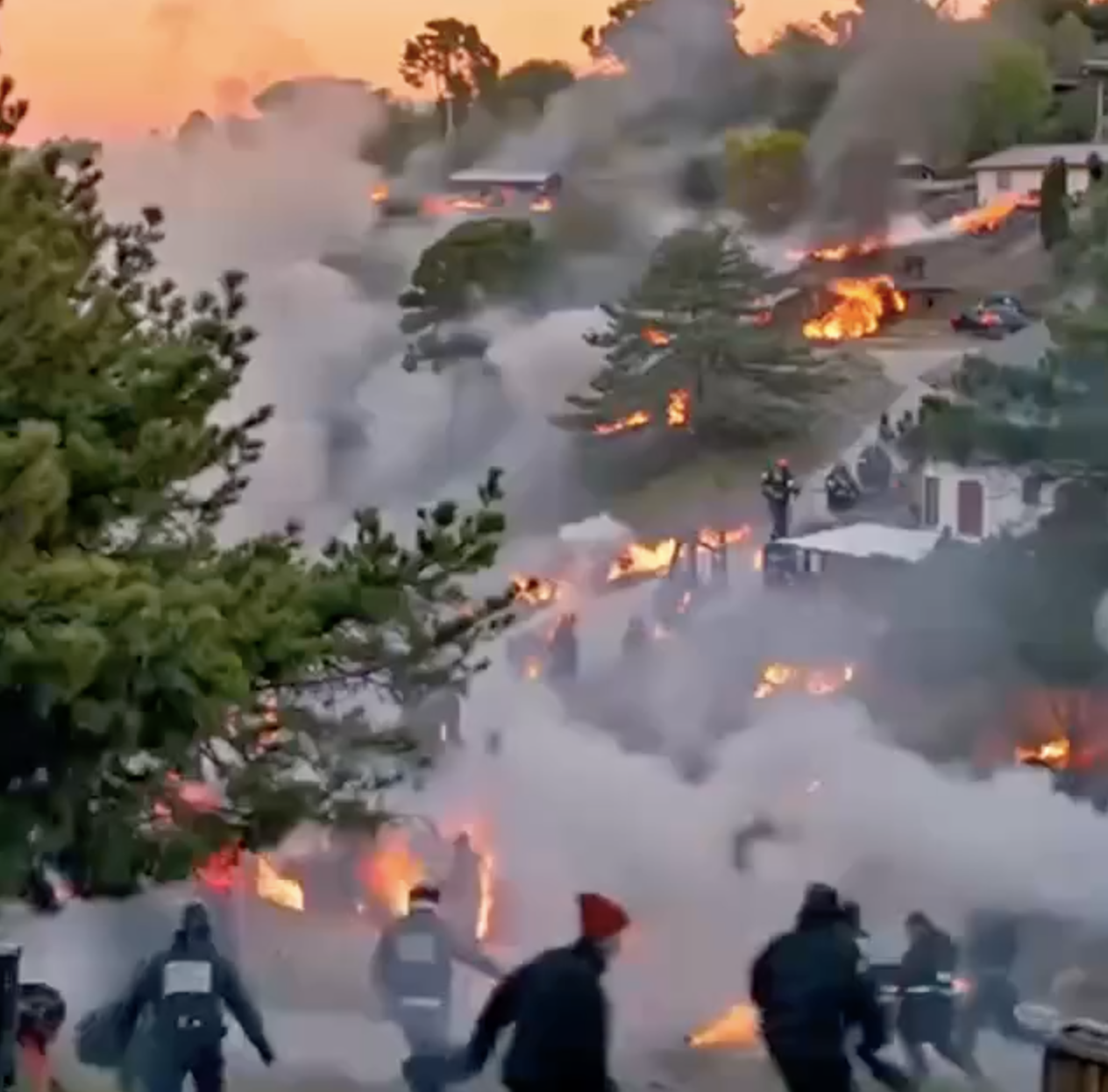The sun had barely risen over the hills of northern California when the first wisps of smoke curled into the clear blue sky. At first, it was mistaken for morning mist—a soft haze drifting lazily through the pine trees of Black Hollow Valley. But by noon, the smoke had thickened, blackened, and roared into a monster no one could ignore.
It started deep in the forest, sparked by a forgotten campfire or a lightning strike—no one was quite sure. The forest was dry, brittle from months of drought. The wind, fierce and restless, fanned the flames through the underbrush like a dragon breathing fury. Trees crackled and exploded as the fire fed on resin-rich bark. Birds screamed and scattered. Deer ran. But the fire was faster.

On the edge of the forest stood a small house, tucked between two ridges, built decades ago by Jack and Marlene Adams. It was their dream—a quiet retreat away from the noise of city life. Jack had retired from the fire department ten years ago, thinking he’d left flames behind forever.
That morning, Marlene was baking bread. The smell of rising dough filled the kitchen. Jack was out front splitting firewood when he saw the smoke rising like a pillar behind the trees. One glance at the horizon and he knew.
“Mar!” he shouted, bolting toward the house. “It’s coming!”
The evacuation alert came minutes later, too late for most. Power lines had already fallen, blocking the road. Their only exit was the narrow dirt path leading down the canyon, now choked with smoke.
“We’re not going to make it down that way,” Jack said, grabbing Marlene’s hand. “We need to shelter in the meadow.”
They ran with their two dogs, clutching only a backpack filled with water, their wedding photo, and an old radio. Behind them, the fire marched like a living thing—greedy, furious, alive. The sky turned orange, then blood-red. Ash rained down like snow.
From the hill, they watched as their house caught fire. The roof went first, collapsing with a groan. Then the windows burst. The chimney stood last, defiant, before crumbling into dust. Marlene wept quietly. Jack held her, numb.
All night they waited, lying on wet blankets in the grass, praying the wind would turn. Fire crews came the next morning, cutting through what was left of the woods. The couple was rescued, but their home—every memory, every photo, every hand-carved shelf—was gone.
The news called it the Clearwater Fire, one of the worst that season. Thousands of acres burned. Dozens of homes lost. But for Jack and Marlene, it wasn’t just property—it was a life, a chapter, a legacy reduced to ash.
Weeks later, they returned to the charred remains. Jack sifted through the rubble and found his firefighter badge, blackened but whole. Marlene found her mother’s wedding ring under a stone. That was all.
“We’ll rebuild,” she said softly.
Jack nodded. “But not here.”
They moved closer to their daughter’s home in Oregon, where the rains were gentler and the forests greener. But in the quiet of every night, they still remembered the sound of the fire. And they carried with them a truth no one forgets once they’ve faced the flame: nature gives, but it also takes—and in the ashes of yesterday, we find the strength to begin again.

